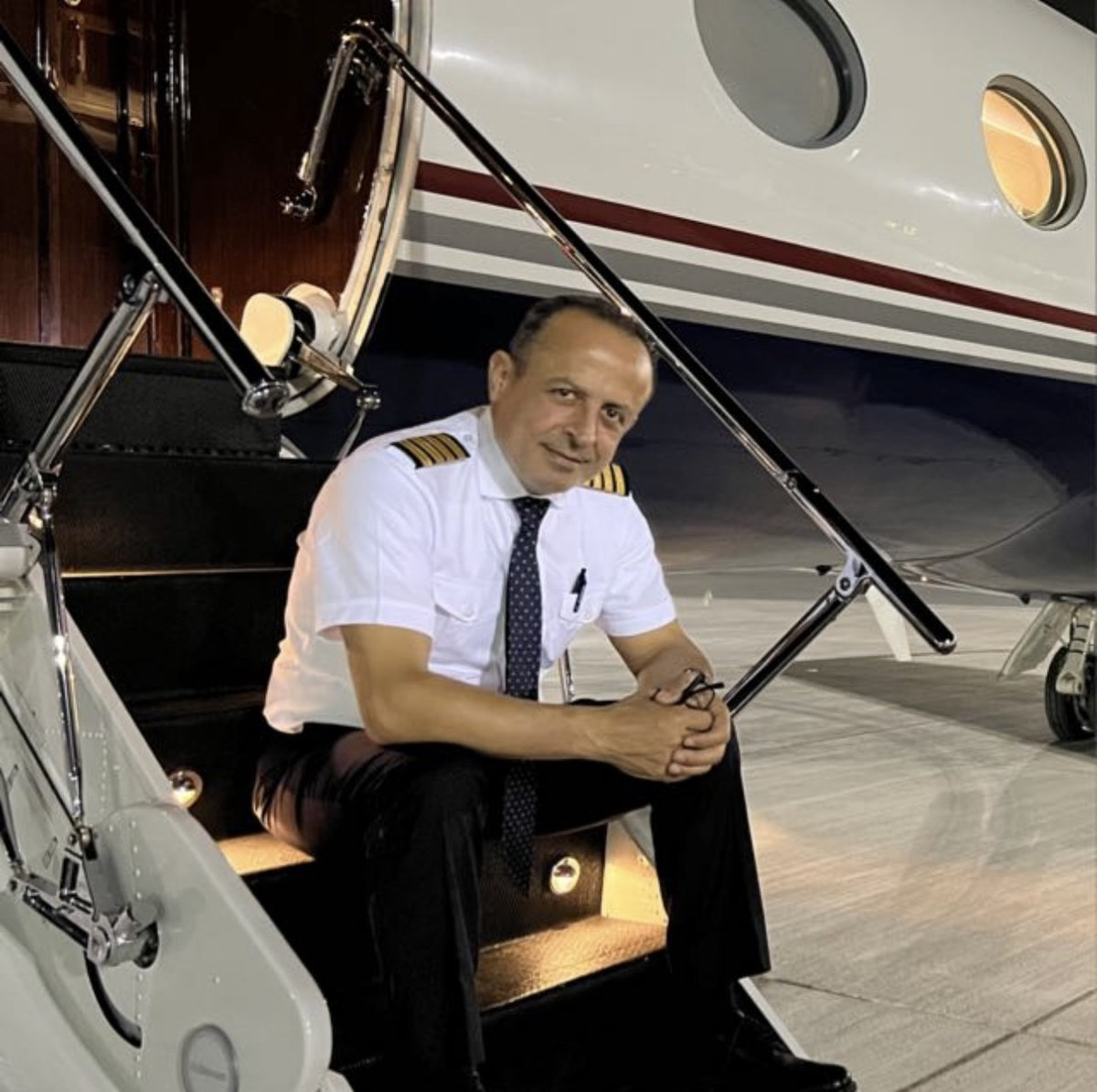RIYADH: Saudi Arabia’s business aviation sector is experiencing a surge fueled by the Kingdom’s expanding economy, significant government investment on infrastructure, and a growing influx of high-net-worth individuals.
Valued at $1.2 billion in 2023 according to TechSCI research, this segment is projected to grow at a compounded annual growth rate of 8.88 percent between 2025 and 2029.
It was also highlighted in the General Authority of Civil Aviation’s roadmap unveiled at Riyadh’s Future Aviation Forum in May.
The roadmap aims to support the Kingdom’s development as a global high-value business and tourist destination.
Additionally, it targets a tenfold increase in the contribution to gross domestic product by the general aviation sector to $2 billion by 2030, covering the business jet segment, including charter, private, and corporate planes.
Farid Gharzeddine, captain and CEO of Dubai based private jet company SkyMark Executive, told Arab News: “Saudi Arabia’s private aviation and charter business have always been thriving, serving individuals, business executives, government officials, and special missions.”

Farid Gharzeddine, Captain and CEO of SkyMark Executive. (Supplied)
He added: “In 2023, this sector experienced significant growth driven by the Kingdom’s Vision 2030 and its efforts to diversify away from oil, particularly through the promotion of sectors such as tourism and entertainment. These initiatives had a substantial impact on the private charter industry, influencing both destinations and clientele.”
During this timeframe, he explained that SkyMark Executive, functioning as a private aircraft provider, observed a significant uptick in requests for flights transporting tourists, entertainers, and artists from abroad to emerging destinations such as AlUla, the Red Sea airport, and others.
The Red Sea International Airport, located within three hours’ flying time of 250 million people, launched its first international flights earlier this year.
With a capacity to serve 1 million guests annually, according to the group’s CEO John Pagano, this milestone marks a significant step towards establishing Saudi Arabia as a premier global tourism destination.
According to a research by Mortor intelligence, the GCC region is highly promising for business aviation, and is also a lucrative market for the private aviation sector, due to the presence of a large number of high net worth and ultra-high net worth individuals in the region.
The influx of multinational companies establishing regional headquarters in Riyadh, driven by the Kingdom's efforts to increase foreign direct investment, may have boosted demand for private aviation. This stems from the need for efficient, flexible travel options for corporate executives and high-net-worth individuals, fueling growth in private jet and charter services.
Players are investing in technological advancements to enhance aircraft manufacturing, navigation, and maintenance, anticipating growth in demand for new business jet models offering increased cabin space and long-range capabilities.
Manufacturers such as Gulfstream, Bombardier, and Embraer are focusing on luxury, technology, and performance enhancements to appeal to GCC customers, positioning themselves for growth in the forecast period.

Manufacturers are focusing on luxury, technology, and performance enhancements to appeal to GCC customers, positioning themselves for growth in the forecast period. (Supplied)
Evidence of this is Qatar Executive’s position as the largest operator in the world for two new models from Gulfstream, G500 and G650ER.
Gharzeddine commented that his company’s clients from Saudi Arabia are often one of the most discerning clientele and prioritize state-of-the-art technological advancements when selecting aircraft for their travel needs.
“These clients prioritize excellence in service delivery, emphasizing both technological sophistication and exceptional service standards. They are committed to enhancing their travel experiences to achieve the utmost levels of comfort, safety, and luxury,” he added.
Furthermore, this segment can benefit from Saudi Arabia’s aviation strategy, which aims to expand connectivity to over 250 destinations by 2030. A key component of this plan is privatization, exemplified by the Kingdom's implementation of the first successful public-private partnership model in the Middle East.
GACA also announced during the Future Aviation Forum its targeted investments in six new specialized general aviation airports in the Kingdom, alongside other initiatives.
"These investments are anticipated to enhance infrastructure and service quality within the private aviation sector, making it more appealing to high-net-worth individuals and corporate clients," Gharzeddine commented.
"Improved facilities and services will likely drive increased demand for private jet charters and ownership, boosting the overall efficiency and capacity of the aviation sector. Additionally, these developments will help position Saudi Arabia as a key hub for private aviation in the Gulf region," he added.
Charter business and sustainability
Leading the change in sustainable aviation growth, Saudi Arabia announced its finalization of a comprehensive plan in November to address environmental sustainability within its civil aviation sector, in line with international commitments such as the 2015 Paris Agreement.
Spearheaded by GACA, the Civil Aviation Environmental Sustainability Plan targets the reduction of greenhouse gas releases, with a zero-emissions goal by 2060.
Saudi Arabia’s initiatives extend to hydrogen fuel infrastructure and green projects like the Circular Carbon Economy, while major developments such as AMAALA and the Red Sea project reflect a commitment to net-zero emissions.
Global business and government leaders consider sustainable aviation fuel a key opportunity for significant reductions in air travel emissions, with numerous initiatives underway to make this energy product a reality.
SAF is derived from renewable hydrocarbon sources and can reduce carbon emissions by 75 percent compared to traditional fossil-based jet fuel.
However, the primary challenge is supply and demand, as production needs to increase significantly to meet the set targets by 2030.
According to Gharzeddine, in addition to the limited supply, achieving economies of scale to reduce production costs is also an ongoing issue, as is the high charge of specialized processing required for biofuels.
Maryam Al-Balooshi, the UAE’s lead negotiator for aviation climate change, also emphasized the urgent need for Gulf countries to produce SAF to compete in the Western-dominated market and support greener flights, as reported by the National News in February.
An important aspect to consider is how technology and artificial intelligence can play pivotal roles in driving sustainable aviation. Advanced flight planning systems use AI to optimize flight paths, reducing fuel consumption and minimizing carbon emissions.
“By analyzing weather patterns, air traffic, and aircraft performance in real-time, AI can suggest more efficient routes and altitudes, ensuring flights operate at maximum efficiency,” Gharzeddine explained.
Predictive maintenance powered by AI also enhances sustainability by identifying potential issues before they become significant problems, thereby reducing downtime and extending the lifespan of aircraft components.
Additionally, AI-driven data analytics can help monitor and manage the carbon footprint of each flight, enabling operators to make informed decisions about fuel usage, weight management, and other factors that influence emissions.
By leveraging advanced technology, AI, and SAF, the private aviation sector in Saudi Arabia can meet growing demand while setting a benchmark for sustainability in the global aviation industry.





























